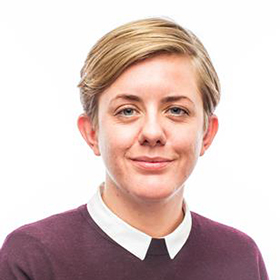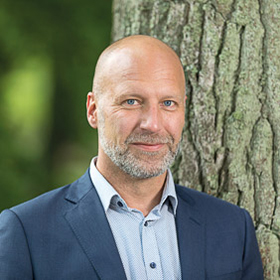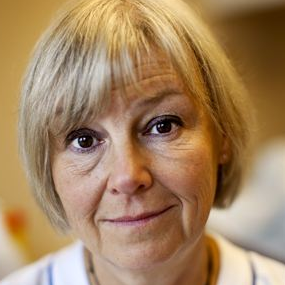Scientific Committee
The Scientific Committee will comprise of the node-leaders of the SWE-REG network:

Associate Professor of Epidemiology, Institute of Environmental Medicine, Karolinska Institutet
Node Leader, SINGS - The Swedish Interdisciplinary Graduate School in Register-Based Research (SINGS) has a truly interdisciplinary profile and is of relevance to all quantitative research fields that use registers in research, such as epidemiology, public health, sociology, demography, psychology, statistics, health economics, and other medical and social sciences. SINGS intends to develop deeper knowledge, skills, and scientific and ethical approaches regarding how different sources of data can and should be utilised in research.

Senior Associate Professor, Director of the Institute for Analytical Sociology, Linköping University
Node Leader, Understanding society through register-based machine learning, Linköping University - an interdisciplinary research group whichutilizes a combination of machine learning methods and causal analysis with population register data and satellite imagery to gain deeper insights into social scientific questions, with a special focus on social inequality and neighborhoods. Examples of sub-projects include using satellite imagery, register data and neural networks to construct new definitions of neighborhoods; examining how individuals’ life chances are affected by the neighborhood in which they grew up; and using causal graphs and machine learning to understand social processes that create inequality.

Professor, Division of Occupational and Environmental Medicine, Lund University
Node Leader, AIR Lund – Artificially Intelligent use of Registers – is an interdisciplinary cooperation between researchers at five different faculties at Lund and Halmstad Universities. Focusing on cardiometabolic diseases we use artificial intelligence and machine learning methods applied on the Swedish register infrastructure in order to identify new combinations of risk markers that may prevent disease if intervened on, improve diagnosis and treatment when patients are coming to the emergency departments with signs of these diseases, and improve risk predictions and prognostication beyond the current visit in health care. Just as important, we also address ethical, legal and societal concerns related to the use of big data and complex algorithms in clinical practice, and work with methodological development in order to address some of these concerns.

Professor of Biostatistics and head of MEB biostatistics group, Karolinska Institutet
Node Leader, Statistical Methods for Register-based Research - The overarching aim of our research is to improve register-based research by developing new, and improving existing, statistical methods. Our specific aims for the next four years include extending methods for survival and multi-state models; developing methods for causal inference in the presence of unmeasured confounding; adapting machine learning methods to survival outcomes and developing and applying statistical methods for the analysis of ‘big’ register data, including federated data analysis and improved sampling techniques.

Professor and Consultant of Surgery, Upper Gastrointestinal Surgery, Department of Molecular medicine and Surgery, Karolinska Institutet, and Professor and Consultant of Surgery, School of Cancer and Pharmaceutical Sciences, King’s College London
Node Leader, Upper Gastro-Intestinal Research (UGIR), Karolinska Institutet – is a research environment (node) at Karolinska Institutet. We examine diseases and surgery of the oesophagus and stomach with a focus on three public health concerns: 1) Upper gastrointestinal cancer, 2) obesity, and 3) gastro-oesophageal reflux disease. We use register data combined with clinical data and patient-reported outcomes to improve the knowledge about these public health concerns, with the aim to prevent death from these diseases, and to enable longer life, reduced morbidity, and better quality of life in these patients.

Senior Lecturer in Molecular Medicine oriented towards respiratory diseases, Department of Internal Medicine at Institute of Medicine, University of Gothenburg
Node Leader, STELLAR - ReSpiraTory EpidemioLogy Research PLAtfoRm – which builds a multidisciplinary research environment that capitalizes on the cohort-register linked data in order to catalyze novel epidemiological studies and increase respiratory research capacity. We are: (1) creating secure databases to house the study data; (2) building a public-oriented observatory to provide up-to-date information on the burden of airway diseases in Sweden; and (3) addressing specific questions through data pooling of the two cohorts. Through this project, Andas Sverige (www.andassverige.se) and Breathe Sweden (www.breathesweden.com) have been built to enhance public alignment with respiratory research and promote shared understanding research collaboration among researchers, respectively.

Professor at Department of Government, Uppsala University
Node Leader, Social Science Genomics, Uppsala University – The research project “The genetics of life course outcomes” at Uppsala University aims at developing an international and interdisciplinary research environment at the forefront of social science genomics. By leveraging the increasing availability of genetic data combined with register and survey data, we intend to increase the understanding of three broad classes of life course outcomes: (i) education and labour market outcomes, (ii) social and political behaviours and (iii) health-related behaviours and outcomes. The project has three aims. First, we will perform genome-wide association studies of several new outcomes. Second, to reduce barriers to entry for researchers in the wider social science field interested in using genomic data in their research, we will construct a repository for polygenic scores for several major social-scientific surveys. Third, we intend to maintain and develop this interdisciplinary research environment by providing opportunities for a number of postdocs and PhD students to establish themselves in the social genomic research field.

Professor of Medicine, Department of Molecular and Clinical Medicine, University of Gothenburg
Node Leader, GOCARTs - GOthenburg CArdiovascular RegisTry Studies – at the Sahlgrenska Academy, capitalizes on the strong tradition of collaboration between clinical research and cardiovascular epidemiology in Gothenburg with a unique platform for register-based research in cardiovascular diseases (CVD), including coronary heart disease, stroke, heart failure, cardiac arrest, congenital heart disease and diabetes type 1 and 2. GOCARTs represents a strong research environment with skilled and internationally competitive researchers within the fields of medicine, statistics, social sciences bringing CVD register research forward into a new generation.